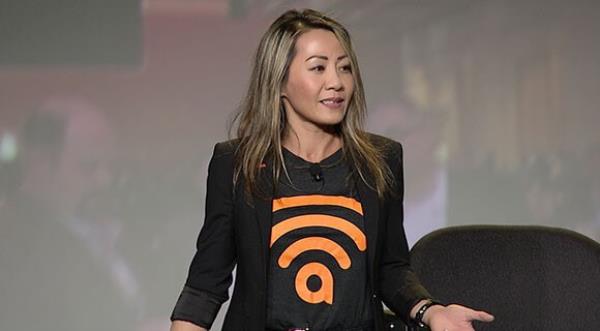04 June 2018

Aruba's Janice Le reckons the study shows how digital tech is improving the top and bottom lines for organisations.
Employees who work in digital workplaces are more productive, more motivated, have higher job satisfaction, and report an overall better sense of well-being.
That’s according to new research from Aruba which reveals both the business and human benefits of more digitally-driven workplaces, and how companies that are less technologically advanced are at risk of falling behind the competition and not attracting top talent.
For its The Right Technologies Unlock the Potential of the Digital Workplace study, the company surveyed 7,000 employees from public and private sector organisations of all sizes, with a focus on the industrial, government, retail, healthcare, education, finance, and IT/technology/telecoms sectors.
Respondents were interviewed in the UK, Germany, France, Netherlands, Spain, UAE, US, Singapore, Japan, Australia, India, Brazil, Mexico, China and South Korea.
According to Aruba, there is a “clear chasm” in employee performance and sentiment between more advanced digital workplaces and those that employ digital technology to a lesser degree.
When asked to rate the impact of digital technology, employees in the UK were found to be “hugely positive”.
Fifty-three per cent stated that it has improved workplace motivation, 81 per cent said it has improved collaboration with other employees, and 68 per cent said it has improved the speed of work.
The study also discovered that 69 per cent of employees in the UK would like to see fully automated equipment brought into the workplace, and 57 per cent reckon the traditional office will become obsolete due to advances in technology. The vast majority – 92 per cent – believe their workplace would be improved through greater use of technology
Janice Le, chief marketer for Aruba, says: “This global study indicates that choice, personalisation, ease and automation are improving the top line and the bottom line for organisations who are defining the future of work.”
Globally, the study found that 72 per cent of respondents with a digital workplace reported a high ability to adopt new work skills and 65 per cent had seen professional development and growth through the use of digital technology. Aruba says that’s double the amount of non-technology users.
The company adds that while automation can be perceived as a threat to job security, its research found that there was widespread enthusiasm for it.
Seventy-one per cent of overall respondents said they would welcome a fully automated workplace in the future, allowing organisations to build smarter, more effective working environments.
However, the study also confirmed that cyber security remains a challenge for employers.
Although employees reported higher levels of cyber security awareness (52 per cent stated that they think about security often or daily), they also admitted to taking more risks with company data and devices, with 70 per cent admitting to risky behaviours such as sharing passwords and devices.
Furthermore, a quarter have connected to potentially unsafe open Wi-Fi in the past twelve months, and a fifth said they use the same password across multiple applications and accounts. Seventeen per cent admitted to writing down passwords in order to remember them.
Among its recommendation for companies to move forward in their digital journeys, Aruba says companies must architect the digital workplace with security as an integral part of the design, taking into account the role of human error as well as bad actors.
It also advises IT departments to work with business managers, end-users and other stakeholders to define a roadmap for their digital workplace evolution.
It says this includes moving beyond established technologies to deploying new tools such as smart sensors and customised mobile apps that will create increasingly personalised workplace experiences.
IT leaders should also plan for, and invest in, a working environment without borders.
“The consumerisation of the workplace is a very real movement,” says Le. “Employees are consumers and we bring consumer expectations with us to work. The workplace is getting smarter and therefore, employees are working smarter.”










